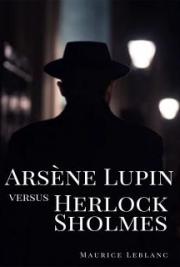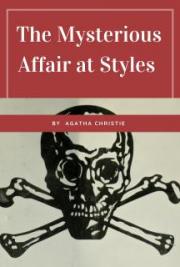The Finale
THE WIFE WRITES, AND CLOSES THE STORY.
THERE was a little introductory narrative prefixed to "The Two Destinies," which you may possibly have forgotten by this time.
The narrative was written by myself--a citizen of the United States, visiting England with his wife. It described a dinner-party at which we were present, given by Mr. and Mrs. Germaine, in celebration of their marriage; and it mentioned the circumstances under which we were intrusted with the story which has just come to an end in these pages. Having read the manuscript, Mr. and Mrs. Germaine left it to us to decide whether we should continue our friendly intercourse with them or not.
At 3 o'clock P.M. we closed the last leaf of the story. Five minutes later I sealed it up in its cover; my wife put her bonnet on, and there we were, bound straight for Mr. Germaine's house, when the servant brought a letter into the room, addressed to my wife.
She opened it, looked at the signature, and discovered that it was "Mary Germaine." Seeing this, we sat down side by side to read the letter before we did anything else.
On reflection, it strikes me that you may do well to read it, too. Mrs. Germaine is surely by this time a person in whom you feel some interest. And she is on that account, as I think, the fittest person to close the story. Here is her letter:
"DEAR MADAM (or may I say- 'dear friend'?)--Be prepared, if you please, for a little surprise. When you read these lines we shall have left London for the Continent.
"After you went away last night, my husband decided on taking this journey. Seeing how keenly he felt the insult offered to me by the ladies whom we had asked to our table, I willingly prepared for our sudden departure. When Mr. Germaine is far away from his false friends, my experience of him tells me that he will recover his tranquillity. That is enough for me.
"My little daughter goes with us, of course. Early this morning I drove to the school in the suburbs at which she is being educated, and took her away with me. It is needless to say that she was delighted at the prospect of traveling. She shocked the schoolmistress by waving her hat over her head and crying 'Hooray,' like a boy. The good lady was very careful to inform me that my daughter could not possibly have learned to cry 'Hooray' in her house.
"You have probably by this time read the narrative which I have committed to your care. I hardly dare ask how I stand in your estimation now. Is it possible that I might have seen you and your good husband if we had not left London so suddenly? As things are, I must now tell you in writing what I should infinitely have preferred saying to you with your friendly hand in mine.
"Your knowledge of the world has no doubt already attributed the absence of the ladies at our dinner-table to some report affecting my character. You are quite right. While I was taking Elfie away from her school, my husband called on one of his friends who dined with us (Mr. Waring), and insisted on an explanation. Mr. Waring referred him to the woman who is known to you by this time as Mr. Van Brandt's lawful wife. In her intervals of sobriety she possesses some musical talent; Mrs. Waring had met with her at a concert for a charity, and had been interested in the story of her wrongs, as she called them. My name was, of course, mentioned. I was described as a 'cast-off mistress' of Van Brandt, who had persuaded Mr. Germaine into disgracing himself by marrying her, and becoming the step-father of her child. Mrs. Waring thereupon communicated what she had heard to other ladies who were her friends. The result you saw for yourselves when you dined at our house.
"I inform you of what has happened without making any comment. Mr. Germaine's narrative has already told you that I foresaw the deplorable consequences which might follow our marriage, and that I over and over again (God knows at what cost of misery to myself) refused to be his wife. It was only when my poor little green flag had revealed us to each other that I lost all control over myself. The old time on the banks of the lake came back to me; my heart hungered for its darling of happier days; and I said Yes, when (as you may think) I ought to have still said No. Will you take poor old Dame Dermody's view of it, and believe that the kindred spirits, once reunited, could be parted no more? Or will you take my view, which is simpler still? I do love him so dearly, and he is so fond of me!
"In the meantime, our departure from England seems to be the wisest course that we can adopt. As long as this woman lives she will say again of me what she has said already, whenever she can find the opportunity. My child might hear the reports about her mother, and might be injured by them when she gets older. We propose to take up our abode, for a time at least, in the neighborhood of Naples. Here, or further away yet, we may hope to live without annoyance among a people whose social law is the law of mercy. Whatever may happen, we have always one last consolation to sustain us--we have love.
"You talked of traveling on the Continent when you dined with us. If you should wander our way, the English consul at Naples is a friend of my husband's, and he will have our address. I wonder whether we shall ever meet again? It does seem hard to charge the misfortunes of my life on me, as if they were my faults.
"Speaking of my misfortunes, I may say, before I close this letter, that the man to whom I owe them is never likely to cross my path again. The Van Brandts of Amsterdam have received certain information that he is now on his way to New Zealand. They are determined to prosecute him if he returns. He is little likely to give them the opportunity. "The traveling-carriage is at the door: I must say good-by. My husband sends to you both his kindest regards and best wishes. His manuscript will be quite safe (when you leave London) if you send it to his bankers, at the address inclosed. Think of me sometimes-and think of me kindly. I appeal confidently to your kindness, for I don't forget that you kissed me at parting. Your grateful friend (if you will let her be your friend),
"MARY GERMAINE."
We are rather impulsive people in the United States, and we decide on long journeys by sea or land without making the slightest fuss about it. My wife and I looked at each other when we had read Mrs. Germaine's letter.
"London is dull," I remarked, and waited to see what came of it.
My wife read my remark the right way directly.
"Suppose we try Naples?" she said.
That is all. Permit us to wish you good-by. We are off to Naples.







